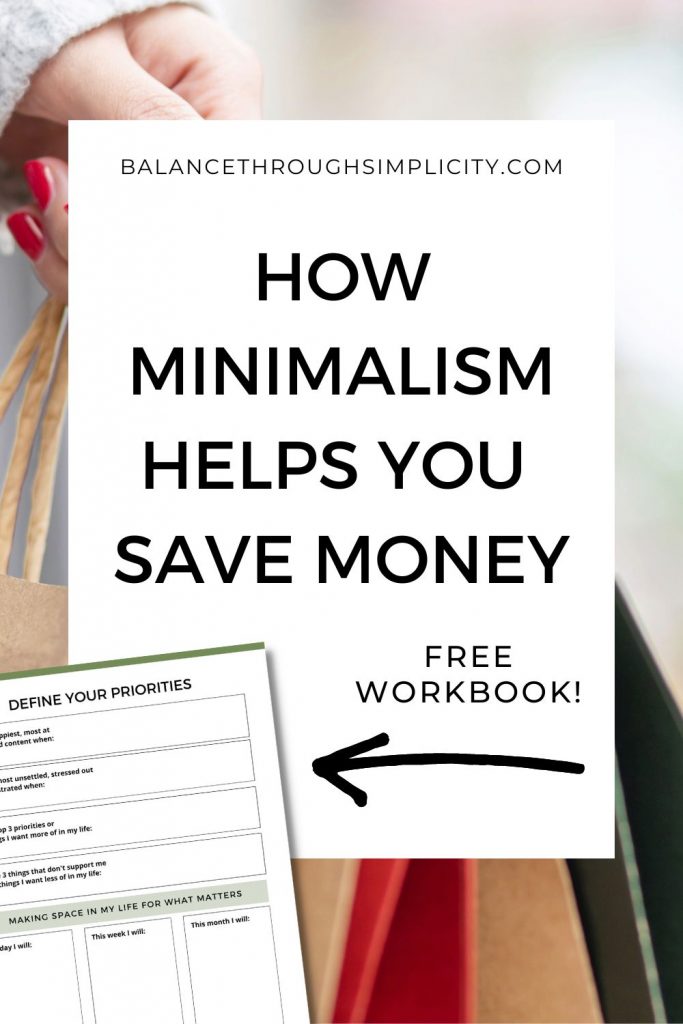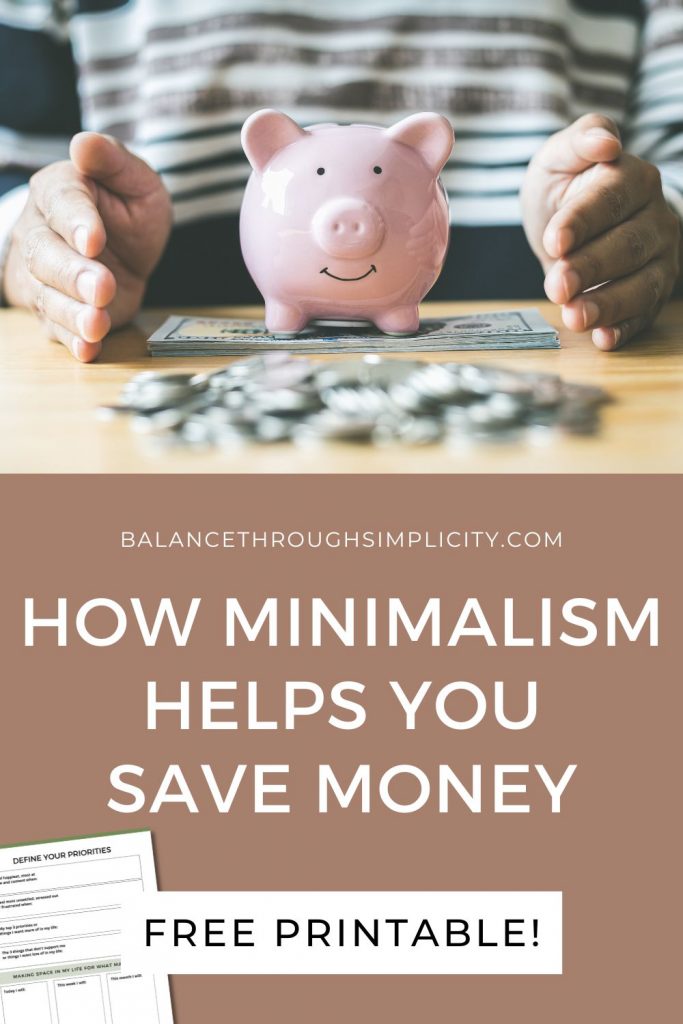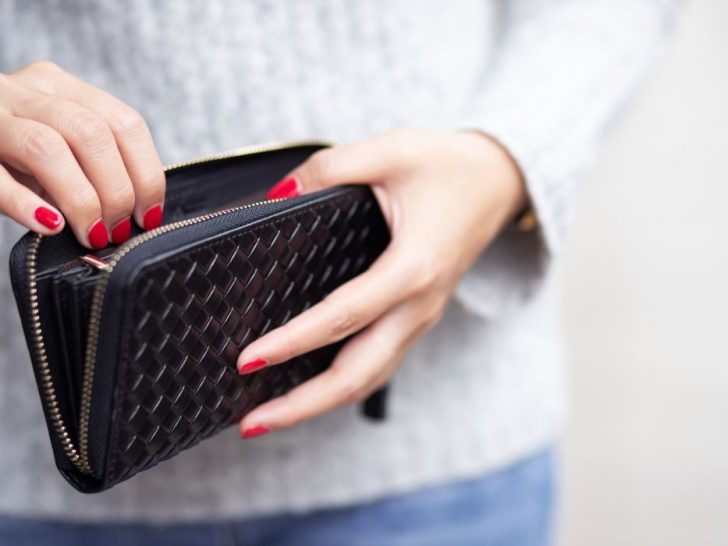MINIMALISM AND MONEY: HOW MINIMALISM CAN HELP YOU SAVE MONEY
Minimalism is a lifestyle that encourages us to be mindful and intentional about how and where we spend our money. Here are some ways minimalism can help you save money and prioritise life over stuff.
WHAT IS MINIMALISM?
The minimalist lifestyle is about being aware of what you let in and keep out of your life. It’s about putting the things that matter ahead of the stuff that’s just empty padding and honouring these priorities as you go about your daily life.
Unfortunately, most things in life cost money these days and there’s an increasing disparity between what comes into our bank accounts and what goes out.
Minimalism helps us save money and keep track of our finances in so many ways and I’d like to share my thoughts on this topic with you today.
No matter if you’re struggling to make ends meet, or you’re financially comfortable, I hope you find this article helpful and can use some of it to assess your own financial situation and whether minimalism has anything to offer that could help you.
HOW MINIMALISM CAN HELP YOU SAVE MONEY
Here are some ways minimalism can help you save money. Choose what works for you, get professional advice and support if you feel you need it.
1. Minimalism encourages you to think before you buy
Minimalism isn’t about never going shopping. In fact, many minimalists love to shop and it’s a fun past time you can do alone or with others. However, minimalists are intentional about what they buy and why.
Minimalism is about being mindful of your choices, decisions and actions and your shopping habits are no different.
Instead of filling a bored weekend, making an impulse buy or as a response to feeling stressed, try asking yourself some questions before you hit the shops.
Do I really need this item? Do I have something like it already? Can I make do without it? Where will I keep it? Will it add real value to my life in some way? Can I wait a few days and see if I still want it? Is it necessary? Can I afford it?
How you answer these questions is up to you, but the very act of asking them means you’re making intentional and mindful decisions about where, when and how to spend your money.
If the answers show you still really want it and it’s going to provide real benefit, then go for it. Minimalism is about making you happier and more fulfilled, not a life of scarcity and deprivation!
2. Minimalism encourages you to make do with what you’ve got
One of the questions I suggested above was whether you’ve already got something the same or similar. Would you be buying a duplicate or just more of the same.
A minimalist home and life is free from excess clutter. Although we might own less stuff, we do still own stuff and, as an example, I have several pairs of shoes and bags for different occasions and outfits.
However, in general, I’ve found a good rule of thumb for when I’m out shopping, is that if I’ve got something similar and can make do, then I don’t buy it.
If I do decide to buy something new, then I tend to use the one in, one out rule. Buy something new but donate, recycle or throw the older version.
This avoids stuff and duplicates building up, but also helps me be intentional about what I bring into and keep in my home. After all, I have to look after everything that comes in and that takes time, energy and more.

3. Minimalism encourages you to assess your priorities
Before I simplified my life I would buy all manner of things because I wanted to keep up with my friends and people I knew.
Like many, I measured success by the size of my house and wardrobe and how many holidays we had. That’s not to say we could afford all these things, but that’s what I aspired to and worked so hard to achieve.
Over the years, as I’ve simplified my life and decided what was important (so I could get rid of what wasn’t important) I learnt about what really, truly mattered to me. My kids, my family and friends, how my home felt and not what it looked like, and whether we were happy, healthy and content.
Although money helps to provide a solid foundation for all these things and to ease the stress and strain of busy, modern life, the things that are important to me are far beyond the reach of what I can buy with money.
In assessing my priorities I now know where to spend my money and where I’m just wasting it.
4. Minimalism encourages you to value life over stuff
Life is precious, priceless in fact. We have limited time and I’d rather be spending my time making the most of my life than buying stuff to clutter my home. Not only is that a waste of money to me, but it also makes my home more difficult to keep clean, tidy and manage.
Minimalism isn’t actually about your stuff, it’s about your approach to life. The benefit of having less stuff is not less stuff per se, it’s about what you can fill your home, schedule, heart and mind with instead.
I don’t want to worry about managing my home, whether it’s tidy or disorganised. I want to go out for the day and have fun with my kids and make memories that we’ll treasure. Life over stuff.
Minimalism can help you save money as you assess what’s important.
5. Minimalism encourages you to simplify your finances and keep track of your spending
That being said, we all need stuff in our lives. Furniture, food, transport, clothes, stuff for our hobbies, paperwork, tools and so much more.
Every day life requires stuff so a minimalist life isn’t about no stuff at all. It’s about curating your stuff so it benefits you, not gets in your way.
The stuff in our lives, from the homes we live in, to the phone or computer you’re reading this on now, all needs paying for. With the cost of living rising more rapidly than our incomes, many of us are feeling the pinch and cutting down on spending.
This makes it even more important to keep track of that spending and manage your money.
Minimalism is about simplifying life in all its areas, including your finances. Even if you’re not a whizz at maths and a spreadsheet, it’s easier to keep tabs on where your money goes when you have less credit cards, less unwanted subscriptions and less impulse buys.
You might even adopt some minimalist organisation tips such as automating your bill payments and setting yourself up with a clutter-free filing and storage system for statements, receipts and other important documents.
Read this article for more about how to simplify your finances.
6. Minimalism encourages you to value space over stuff
Although minimalism isn’t about bare white walls and no furniture, I do think it’s about valuing blank space. Blank space can be in your schedule or on your walls or in the corner of a room. You don’t need to fill it just because it’s blank. That space lets you breathe and calms the eye and brain.
As a minimalist I like to value space over stuff so I have less desire to buy stuff and spend money to fill my spaces with clutter.

7. Minimalism encourages you to stop comparing yourself
An interesting side effect of minimalism for me is that I found I stopped comparing myself to others as much as I did. I still do, I think most of us do if we’re honest. Humans are curious creatures and we like to know what other people are doing and how and why they’re doing it.
Minimalism is counter-cultural because when the rest of society is telling us that more is better, minimalists tend to think the opposite. That less is better.
As the way we measure ourselves shifts, so too does the desire to compare. And, when we stop comparing ourselves with each other, then bigger, better and more stop being the default measures of success.
I’d rather measure my success in terms of happiness, contentment, fulfillment and whether I feel calm and at peace, or stressed out and frazzled.
8. Minimalism encourages you to stop caring what others think
In the same way that minimalism causes you to shift your thinking and instead ‘think like a minimalist’, it also sometimes helps you to stop caring and overthinking about what others think.
I wrote a whole post about how to stop caring so much about what others think and you might like to read it if this is something you struggle with.
I used to and it held me back for so long until I found ways to focus on myself and what I was doing instead of what I thought others were thinking I was doing!
9. Minimalism helps you be more organised
Minimalism does help you be more productive and organised, mostly because it’s easier to be organised and efficient when you have less stuff to manage.
Being more organised helps me stay on top of my finances and keep track of my money, but it also helps because I can find things easily and don’t need to buy replacements for things I’ve lost.
I also know exactly what’s in my kitchen cupboards so I can use ingredients up before they go out of date and have to be thrown.
Minimalism helps me save money and spend less by being more organised.
SHARE YOUR THOUGHTS
I’d love to hear your thoughts on whether minimalism and simplifying your life have helped you save money? What was the biggest change you noticed and how did it make a difference? Do you have any other tips to share that might help others who are interested in minimalism but struggling to get on top of their spending? Leave your comments below!
OTHER RESOURCES ON MINIMALISM
Here are some other articles on minimalism and the minimalist lifestyle which you might find helpful:
- What is so great about minimalism? – a personal perspective
- Does minimalism make you happier? – simplicity and happiness
- Minimalist lifestyle tips – how to embrace minimalism every day
DON’T MISS OUT!
I’m Antonia and on this blog I share practical inspiration to simplify your home, time and life. Follow me on Instagram, Facebook and Pinterest! You can also subscribe to Balance Through Simplicity and receive regular simplicity tips straight to your inbox for free. Make sure you never miss an article plus you’ll get a copy of my free Declutter Starter Kit as a welcome gift!

